Your support helps us to tell the story
From reproductive rights to climate change to Big Tech, The Independent is on the ground when the story is developing. Whether it's investigating the financials of Elon Musk's pro-Trump PAC or producing our latest documentary, 'The A Word', which shines a light on the American women fighting for reproductive rights, we know how important it is to parse out the facts from the messaging.
At such a critical moment in US history, we need reporters on the ground. Your donation allows us to keep sending journalists to speak to both sides of the story.
The Independent is trusted by Americans across the entire political spectrum. And unlike many other quality news outlets, we choose not to lock Americans out of our reporting and analysis with paywalls. We believe quality journalism should be available to everyone, paid for by those who can afford it.
Your support makes all the difference.Kick-off is approaching in the Manchester derby and my heart is in my mouth.
I'm perched well above the Old Trafford turf, in a gantry that appears to be made of Meccano, and my hands are on the controls of Spidercam, the rigged camera that swoops around on cables to provide those famous gravity-defying shots.
"Here, have a go," says Hanns Ulitzner, who controls the camera with an arcade-style joystick. "But be careful, it's quite s..." His next word is "sensitive", but by the time he has completed it, I've managed to point the whole thing skyward.
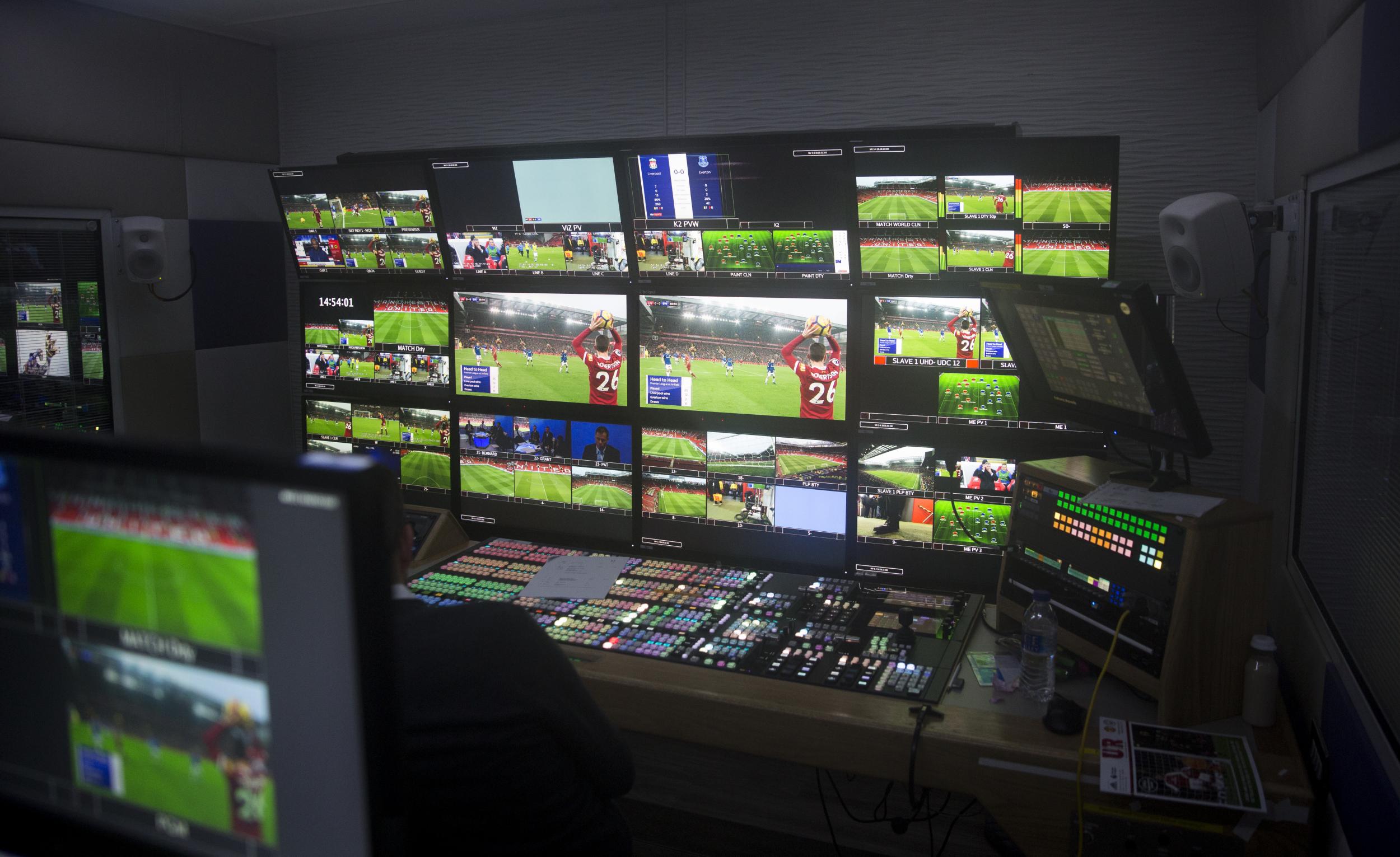
Which would be fine, except it's snowing, and now there is now a melting, watery smudge on the lens – and therefore in the shot. The phone on the desk rings. It's the match director, asking what has happened. For a brief, agonising moment I'm convinced I've ruined Super Sunday for Sky's viewers.
To my relief, time is on our side: Ulitzner's partner – known as the 'pilot' – coolly brings the rig down to pitchside, where a windswept assistant wipes the screen with a cloth. As Spidercam then takes flight again, I step slowly away from the controls and breathe a sigh of relief.
I am not the only one having trouble with the snow. Down at pitchside, after a weather-disrupted trip up from the south east, Thierry Henry is shivering in blizzard conditions. After a quick sound check, he nips into the tunnel to shelter before emerging again for his pre-match duties. "Henry! Henry!" a pair of fans scream. "We've travelled 5000 miles!" He signs autographs for them. "You came to see Man United against Man City, not to see me," he says with a smile.
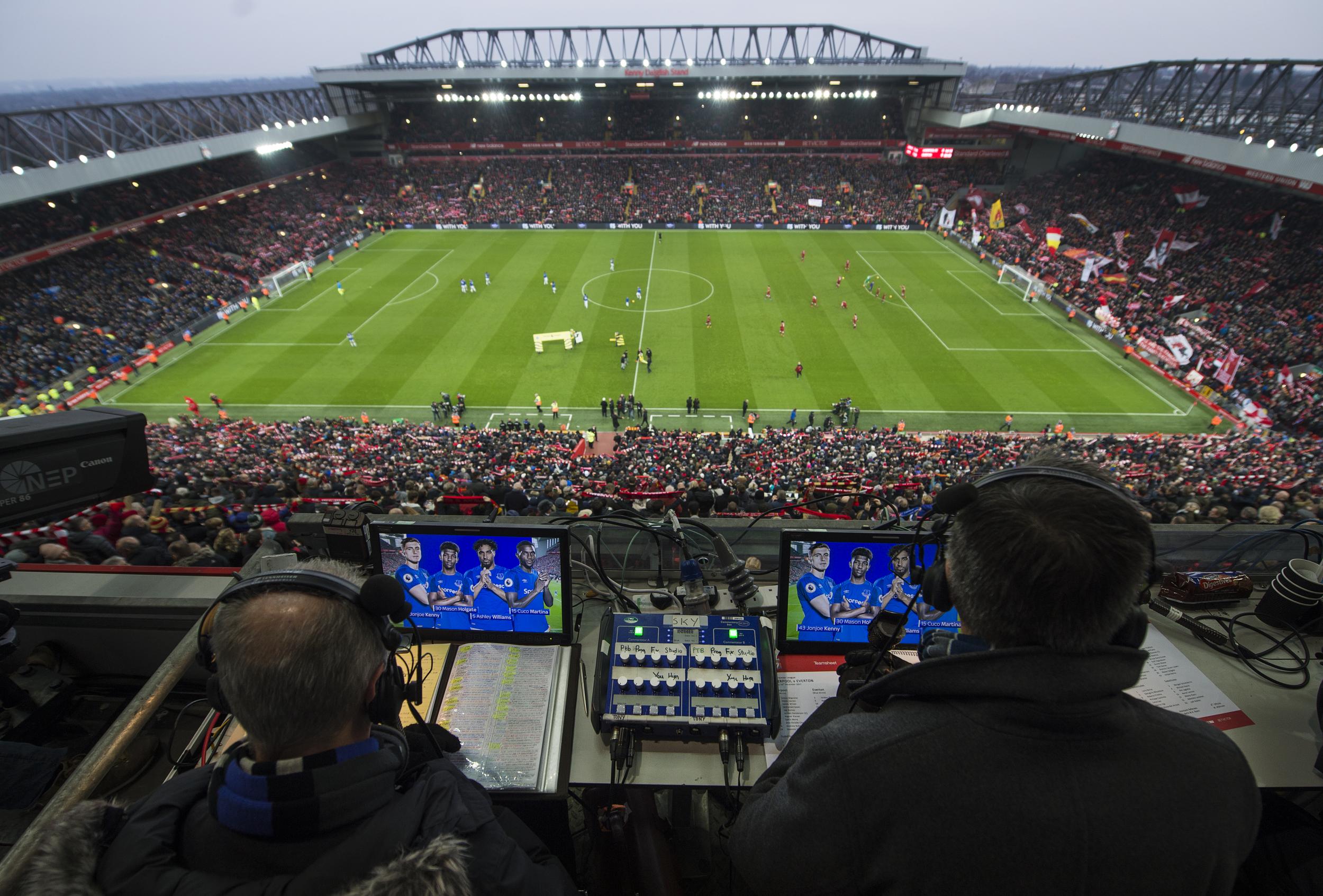
As Henry returns to the warmth of the green room, the work continues for the rest of the 130-strong Sky crew at Old Trafford to broadcast the match. The vans rolled in early on Saturday morning, under the watchful eye of production manager James Breadin, who has spent the day and a half since ensuring everything and everyone is in its rightful place.
It's a big old operation and the level of complexity is ramped up a few notches because Sky, for the first time, are also showing the Merseyside derby immediately prior to its Manchester equivalent. So while the studio presentation is all being filmed at Old Trafford, there are 70-odd more people at Anfield. "This is the biggest spec we go to," explains Breadin. "This one is off the scale."
A good number of the worker bees are stationed in the outside broadcast compound, on the other side of the car park behind the Sir Alex Ferguson Stand. Here, cables wind in and out of the vans like roots in a jungle, turning reality into TV and sending it out to living rooms and pubs. Much of the action takes place in the studio and match trucks: the former takes care of everything that happens before and after the game, while the latter... well, you can probably work it out.
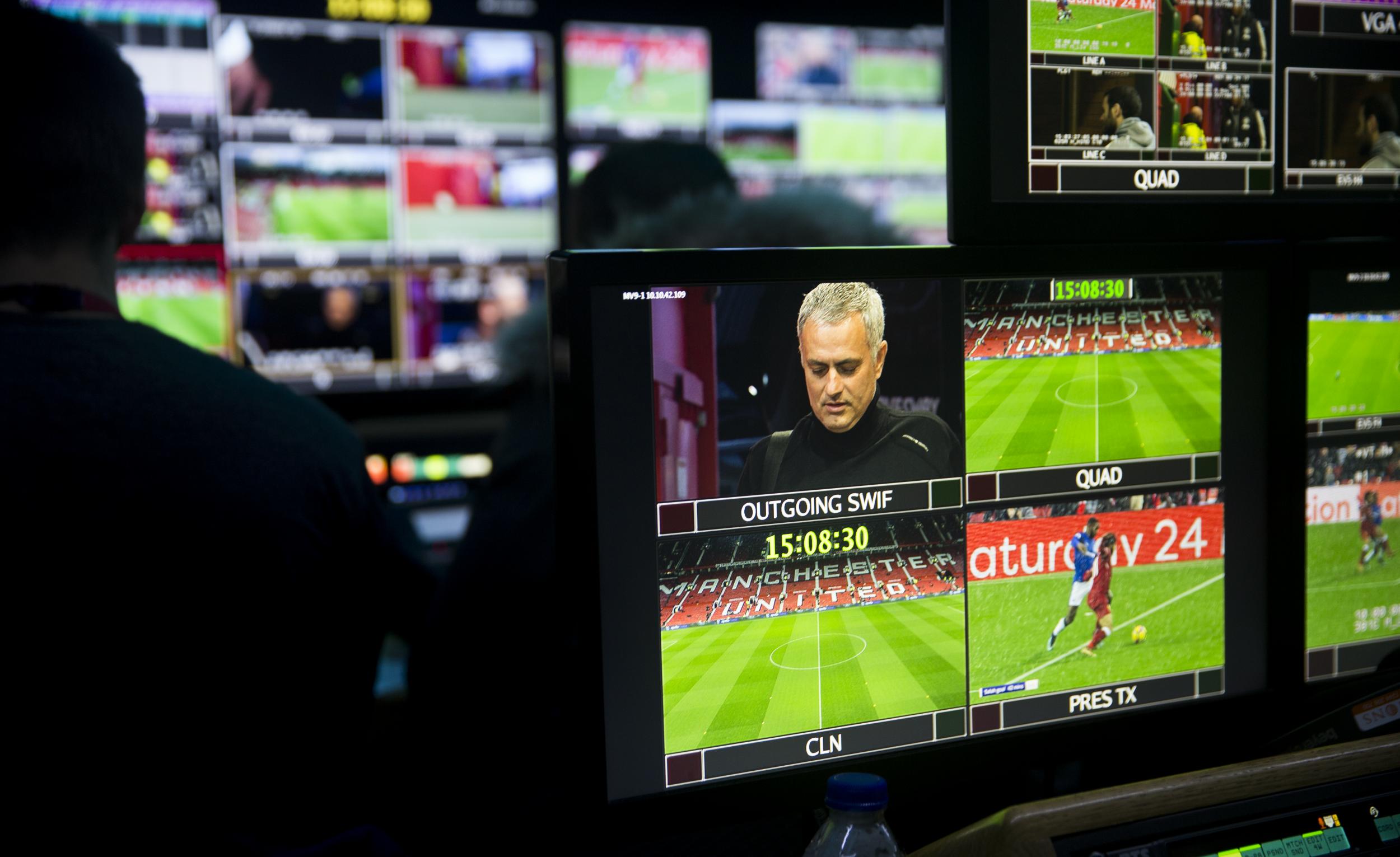
"Everything presentation-wise – build-up, half-time, pre-match, post-match – is all done through here," says Billy McGinty, the senior producer. "So it’s up to me to be in charge of the editorial and ensure everything’s organised, logistically. It’s my job to make sure people are in the right place at the right time."
Much of the preview material is set up well in advance – for this game, for example, Sky liaised with the clubs to set up features with Sergio Aguero, David De Gea and Pep Guardiola – but as the game progresses, it's the studio truck that has to pick out the key moments and stories for focus later. "Post-match is the big challenge," explains McGinty. "We want the post-match analysis to be as concise, yet detailed, as possible."
In the match truck, there are so many screens that it's tempting to wonder whether they're procreating when the lights are off. Editors pore over countless camera angles of Mohamed Salah's opener against Everton, scroll back and forwards using dinky EVS machines, and feed the best shots on for use in replays on screen.
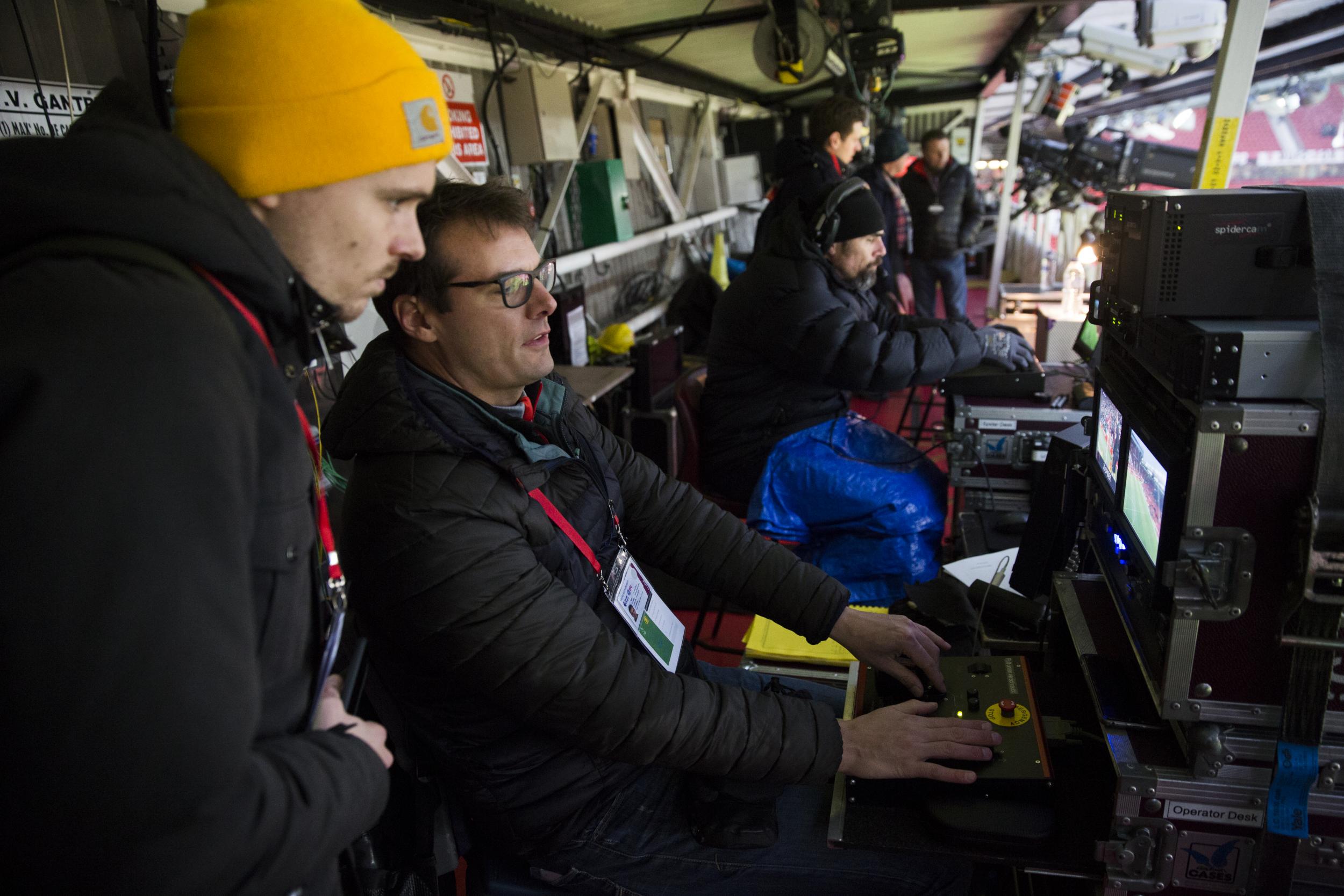
Next door, director Sarah Cheadle is waiting for Manchester City's team news to come through – it's slightly later than scheduled. When United and City kick off, she will be responsible for selecting every camera angle, every cut, every replay. Her desk, dwarfed by a wall of TVs, looks like something from a sci-fi film. “Everything goes through Sarah," Breadin says. She looks calm before the storm.
Past a rabbit warren of corporate boxes lies the Sky studio, overlooking the pitch. Inside, anchor David Jones is watching the final stages of the Merseyside derby with his guests. Jamie Carragher sits on the edge of his seat like an enraptured schoolboy. Graeme Souness leans back while Gary Neville shouts at the screen: "Get a foul! Get a foul! Get a foul!" Noel Gallagher swaps a joke with Carragher than lopes off to get his make-up done. There is a little pile of Haribo Tangfastics on the studio table. Blur your eyes and you could almost be in a student common room.
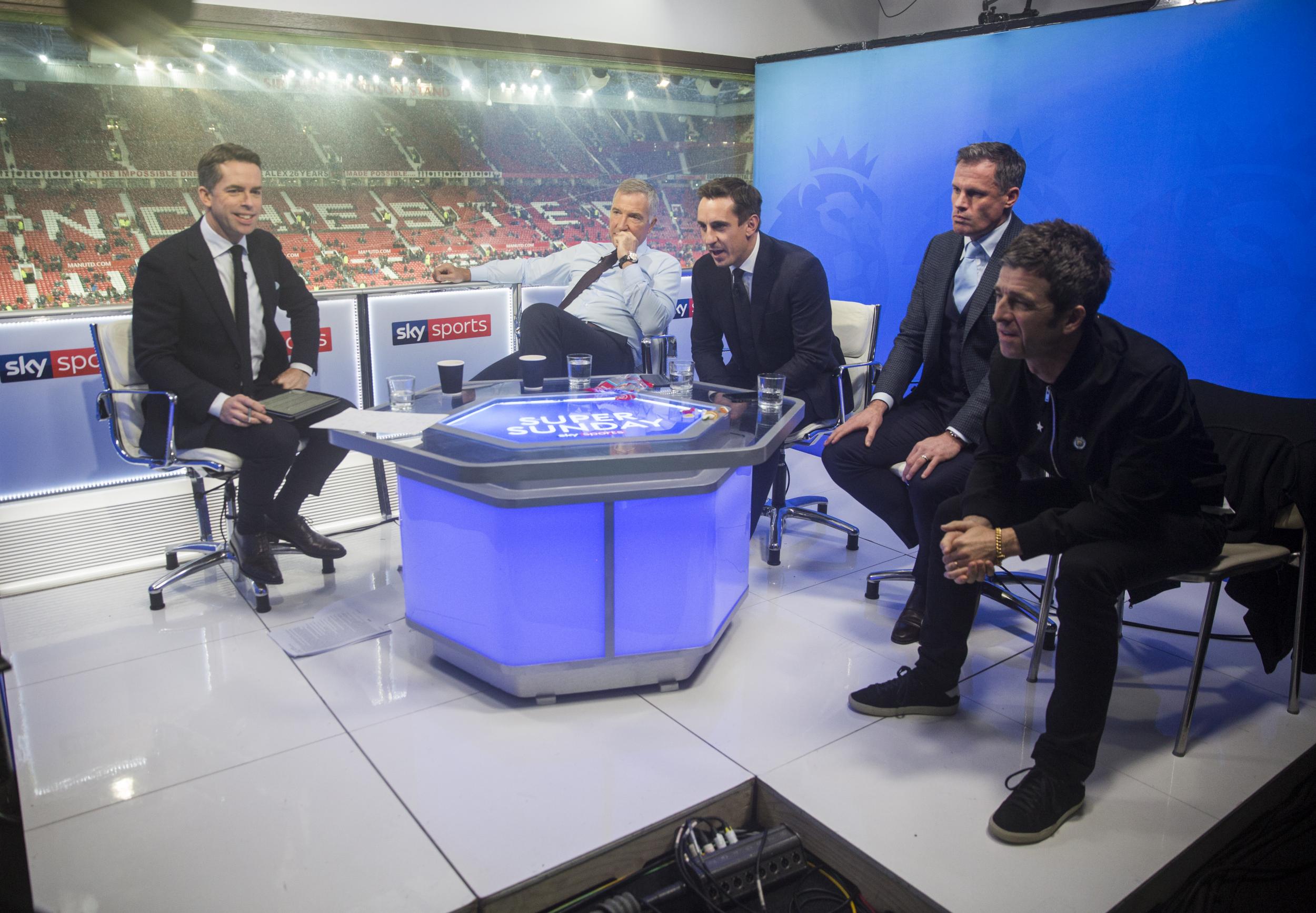
To my untrained eye, Martin Tyler's commentary position looks rather less comfortable: he's squeezed into a little nook on the gantry, surrounded by wires and metalwork. But he laughs off my suggestion that he has been handed the short straw. "You want to get as close as possible," he says. "It’s a very good position: quite a lot have changed – we’ve gone further back in some grounds – but this is lovely."
Tyler is an old hand when it comes to big Sky Sports games, of course, yet he insists that such occasion still get his adrenaline flowing. "You’re pursuing a perfection you can’t achieve," he explains. "You strive to come close but you know you can’t: it’s unscripted, reactive. So you just hope you can keep up with it and try to put it into some sort of context.
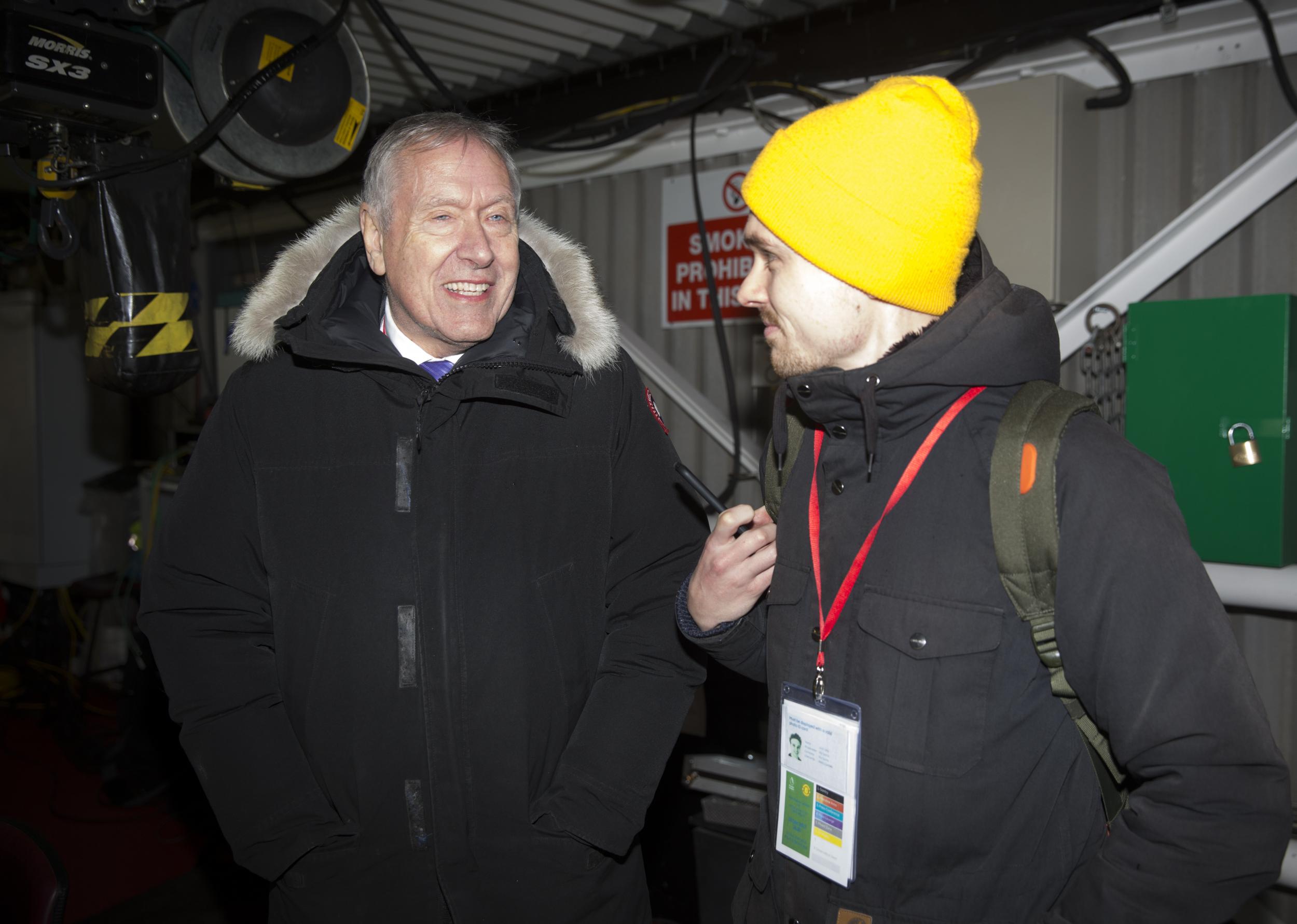
"It’s fast and furious in most Premier League games, so you make sure you don’t get in the way. You want to be there when the viewers need you."
By this stage, the lights are on and the cameras – including my old friend the Spidercam – are primed. Everything, after weeks of preparation, is ready. "By kick off we pretty much know where we’re at," concludes Breadin. It's time to let the action happen.
Sky Sports will show more than 50 live matches over the festive period, including the biggest clashes from the Premier League
Join our commenting forum
Join thought-provoking conversations, follow other Independent readers and see their replies
Comments